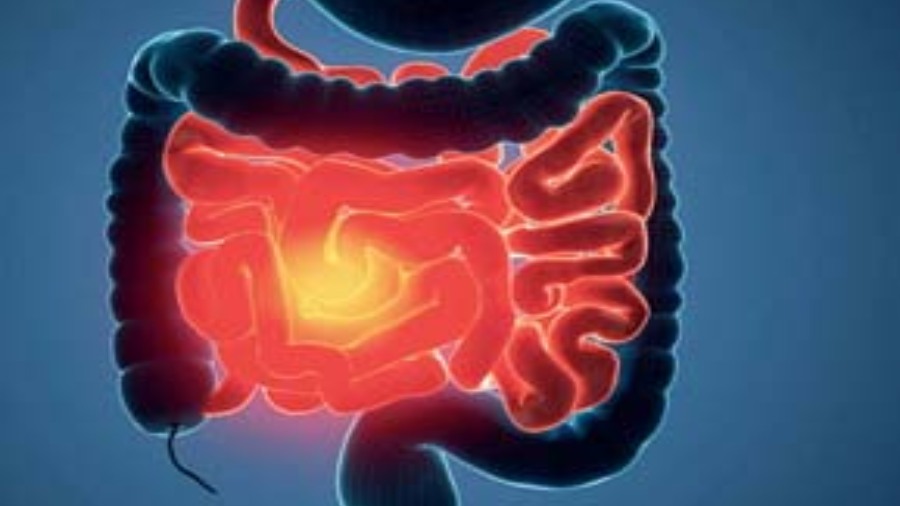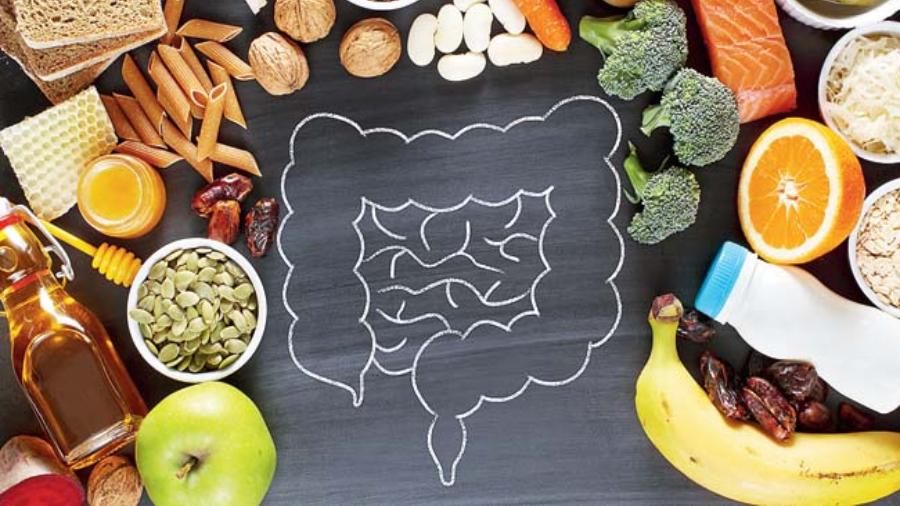Trust your guts!” “Act with your gut instincts!” “Do you have the guts?” All these and more cannot emphasise enough the importance of the gut in our body! Heal the gut and heal yourself! As famously said by Hippocrates, “all disease begins in the gut”. Our gut health is the key to our overall health. Here’s how you can improve it...
WHAT IS YOUR GUT WORTH TO YOU?
We are what we eat? NO!
We are what we digest, assimilate and absorb. The gut is responsible for absorbing nutrients from the food we eat. One can choose to eat the healthiest of foods or a perfectly balanced diet assuming they are obtaining all the vitamins and nutrients, but even 10 per cent of this may not be absorbed if gut health is not optimal.
It is the largest immune organ in the body!
Almost 70 per cent of our immune system cells live in and around our gut. Our gut acts as a gatekeeper and prevents toxins and harmful microbes in food from entering our blood stream. It produces a variety of immune cells that help in fighting infection. Our gut health has an impact on how our bodies respond to infections and allergies, including those in distal organs like our lungs.
The gut-brain connection
The gut is also known as the second brain. As popularly said, one must trust one’s gut instincts. Our brain and the gut are intimately connected by an extensive network of neurones, chemicals and hormones. Remember how one felt butterflies in one’s stomach before going up on the stage, that nauseating feeling one got when one heard something stressful, or that feeling of not being able to eat when one is too anxious? These are some examples of how the gut influences the brain and they are both continuously sending messages to each other via the nervous system.
Happiness is a gut feeling!
Around 80 per cent of the happy hormone, serotonin, is produced in the gut. Therefore, one’s happiness literally depends on the gut. An imbalance in the gut can lead to mood swings, brain fog, anxiety, lack of motivation and even depression.
Weight loss begins in the gut
The gut secretes hormones such as peptide yy and ghrelin that help in controlling our appetite. It signals our brain that our stomach is full, slows down movement of food in the gut so that one can understand when to stop eating. A compromised gut health would be inefficient in sending these signals, thus making intuitive eating difficult.
The master regulator of our hormones
The gut microbes play a major role in the reproductive and the hormonal health of a woman’s life by interacting with insulin, oestrogen, androgens and other hormones. Oestrogen imbalance, thyroid dysfunction, endometriosis, PCOS, ovarian cysts, painful periods, hair fall and acne can all be linked to an imbalance of the gut microbiomes.

Guts gone wild
When the gut wall is irritated or inflamed, the cells loosen up and increases permeability. A ‘leaky’ gut isn’t very selective. It might slam the door on important nutrients while allowing harmful bacteria to enter, contrary to what it’s supposed to do.
Symptoms such as:
• Gas
• Bloating
• Burping or belching
• Constipation
• Diarrhoea
• Nausea
• Burning sensation in the stomach
• Bad breath
• Foul smelling stool, etc. are indicative of gastrointestinal dysfunction.
Sometimes symptoms of a disturbed gut can be absolutely unrelated, such as:
• Joint pain
• Disturbed sleep
• Restless leg syndrome
• Acne and hairfall
• Anaemia
• Migraine
• Fatigue
• Skin allergies, etc.
HEAL YOUR GUT!
Follow this simple four-step protocol.
ELIMINATE COMMON OFFENDERS AND REINTRODUCE SYSTEMATICALLY
Eliminate common trigger foods that can cause gut distress and reintroduce them individually after around three weeks.
⚫ LECTINS: All foods that are high in lectins such as pulses and legumes need to be avoided. Lectins are little harsh on the gut because of its high content of anti-nutrients.
⚫ Unhealthy fats such as refined vegetable oils, sunflower oil, safflower oil, canola oil, corn oil, margarine and dalda, etc. that have high amount of omega 6 fats and could increase the omega 6: omega 3 ratio, thus causing inflammation in the gut.
⚫ SUGAR: Simple sugar has been shown to contribute to low-grade inflammation and increased gut permeability. It also correlates with leaky gut symptoms.
⚫ RAW VEGETABLES: They have a very high microbial load and are very high in fibre, which is only partially digested in the gut, hence could increase bloating, gas production and discomfort in the stomach.
⚫ RAW SEEDS: sunflower, pumpkin, flax, chia seeds, etc. They contain certain anti-nutrients such as phytic acid, Alpha-amylase inhibitor, which can impair digestion and nutrient absorption.

⚫ Gluten found in grains like wheat, barley, rye, semolina etc can lead to inflammation in the gut of gluten-sensitive and gluten-intolerant people.
⚫ Dairy products: Casein, lactose and other immunoglobulins found in most dairy products are common offenders for people with sensitive guts. In the reintroduction phase, start slow by consuming small quantities of these foods one by one and gradually increase. Stagger their introduction so as to enable monitoring the response of the body to the introduced food group.
ADD ANTI-INFLAMMATORY FOODS TO YOUR DIET:

There are certain foods that heal the gut and that promote the production of Zonulin which helps in keeping the walls of the digestive tract intact. These foods are easy on the gut and thus, should be consumed on a daily basis.
⚫ Cereals: White rice and rice-based poha/ flour/noodles etc, barn yard millet.
⚫ Vegetables: Sweet potatoes, regular potatoes, leafy vegetables, gourds, tomato, mushrooms, beans, most seasonal vegetables
⚫ Fruits: Ripe papaya, ripe banana
⚫ Dry Fruits: Dates, prunes, resins, dried figs
⚫ All soaked nuts except peanuts
⚫ Good fats: Ghee, coconut oil, mustard oil, sesame oil, extra virgin olive oil, avocados
⚫ Meat and poultry: Grass-fed and free range chicken, fish and eggs.
SUPPORT YOUR GUT HEALTH BY FOCUSING ON YOUR MENTAL HEALTH

Gut health and emotional health are reciprocal to each other. Stress and anxiety have a direct relation with digestion and one might have issues such as nausea, constipation, diarrhoea and loss of appetite in stressful situations. Focusing on mental health help the gut heal faster. Reading a meaningful book, gardening, guided meditation, listening to music, spending time with loved ones, positive affirmations are some activities that can support mental health and thus, promote healing of the gut.
INCORPORATE HEALTHY HABITS
⚫ Eat slowly, chewing your food well. It helps in releasing enzymes that break the food into particles manageable for the gut.
⚫ Maintain optimal levels of Vitamin D to help reduce inflammation and promote proper immune function.
⚫ Increase intake of iron-rich foods or consider supplementation.
⚫ Eat plenty of food containing omega 3 — walnuts, fish, olives, coconut, soaked nuts to moderate inflammation.
⚫ Focus on recovery and inculcate a healthy lifestyle, managing sleep, stress and exercise.
⚫ Reduce your chemical burden by opting for organic whenever possible. Avoid heating food in plastic; minimise consumption of packaged foods, food colourings, preservatives etc.

Nutrimend is a diet consultancy clinic founded by sister duo Neha Patodia and Nupur Arya
